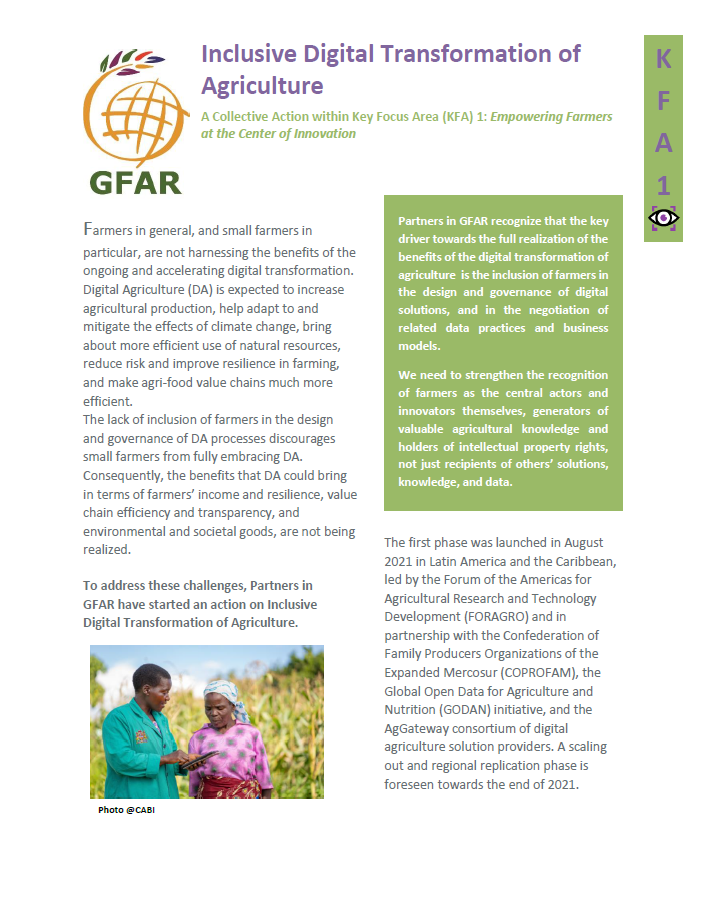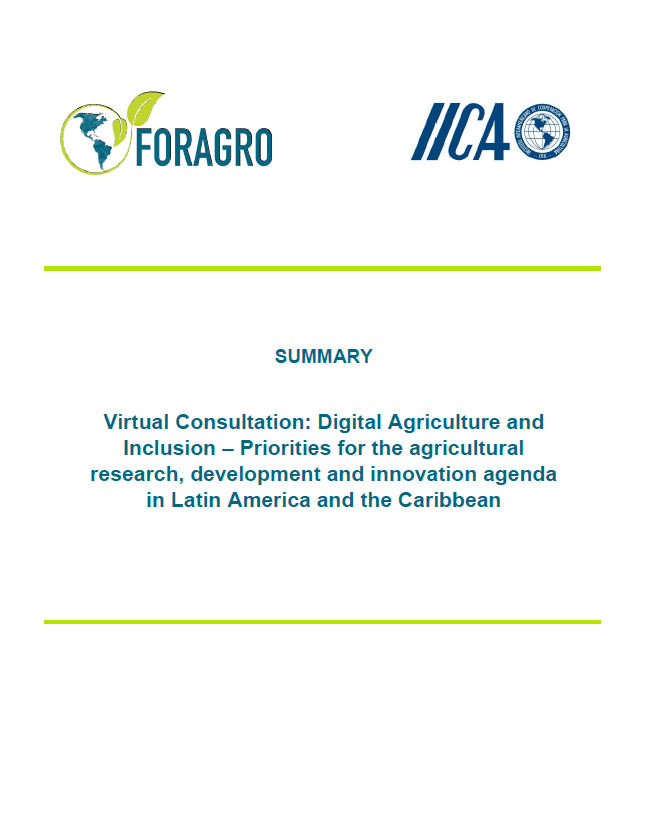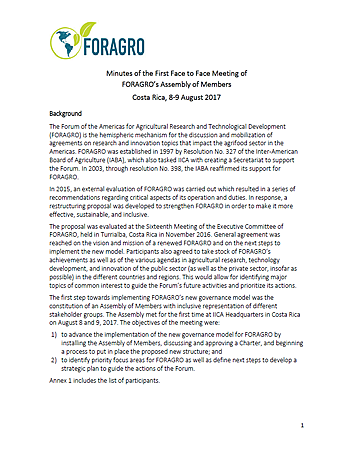Call for Nominations for the new FORAGRO Steering Committee
The Forum of the Americas for Agriculture Research and Technology Development (FORAGRO) is the hemispheric mechanism for debate of an agreement on research, development and innovation (R+D+i) issues affecting the agriculture and food industry of the Americas.
FORAGRO is an open and inclusive organization, with voluntary membership representing the different stakeholder groups involved in agricultural R+D+i in the 34 countries of the Americas. The Forum is currently being restructured through a process that includes the establishment of new governing bodies to strengthen stakeholder representation. The highest body of the new FORAGRO governance is the Assembly of Members.
In its first face-to-face meeting held in Costa Rica in August 2017, the Assembly approved the FORAGRO Charter, which establishes the composition, organization and functioning of the Steering Committee as well as the rules for the election its members. The Steering Committee is the guiding body of FORAGRO, in charge of promoting its actions. It is the operational decision-making body for the Forum.
As mandated by the Assembly, FORAGRO's Executive Secretariat is launching the process for the election of the Steering Committee through this CALL FOR NOMINATIONS from the organizations members of FORAGRO.
The Steering Committee shall consist of the following members
- Representatives of regional mechanisms for cooperation in agricultural R+D+i (five positions)
- Representatives of the academy (one position)
- Representatives of productive systems (four positions), with at least three being from farmers' organizations, including family agriculture
- Representatives of civil society organizations (two positions)
- Representatives of organizations that promote agricultural R+D+i (one position)
- Representatives of extension systems and Rural Advisory Services (one position)
- Representatives of discussion forums linked to agricultural R+D+i (one position)
- Representatives of intergovernmental organizations (political bodies) (one position).
The term of the members of the Steering Committee will be two years, allowing re-election for a further period. Their mandate is institutional, not personal.
Organizations which are members of the Assembly may self-nominate or nominate other member organizations. If your organization has not yet joined FORAGRO’s virtual register, we invite you to enter your organization's information using this form. If there are no nominations for any of the stakeholder groups to be represented in the Steering Committee, a subcommittee will be established to identify and propose candidates.
To submit your nomination, please send an email message to FORAGRO’s Executive Secretariat at secretaria.foragro@iica.int, with a note addressed to the President of FORAGRO, Dr. Amadeo Nicora, indicating the name and position of the person being nominated and the institution it represents. Please attach a short bio of the person who would be representing the nominated organization.
The period for receiving nominations will be open from the date of this call and until October 9, 2017. Once the nominations have been received, the Executive Secretariat will assist those groups that request it in setting up consultation processes for the election of their representatives, whether by consensus or by vote.


